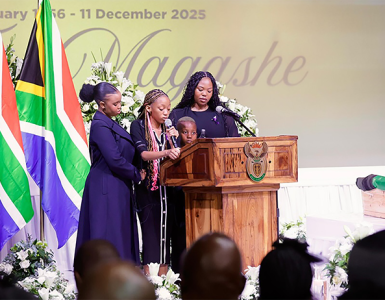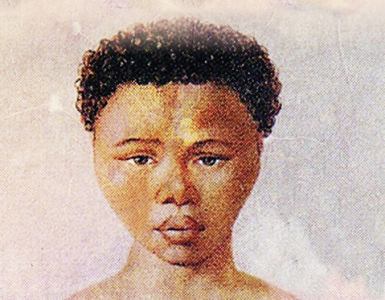DEDICATION: His achievements are a testament to his commitment to excellence and good governance…
By Own Correspondent
One of South Africa’s foremost corporate leaders, Enos Senise Ngutshane, who died aged 68 after a short illness, was also an instrumental figure during the historic June 1976 uprisings.
Ngutshane, who was very instrumental during the historic June 16, 1976 uprising, was appointed by the Minister of Employment and Labour as an independent chairperson of the CCMA’s Governing Body in 2020, wherein he served with dedication and distinction until his passing.
He will be remembered for his sterling contribution in the labour market, which he served with integrity. He has been credited with steering the CCMA’s performance to greater heights, resulting in the organisation attaining three consecutive clean audits. These achievements are testament to his commitment to excellence and good governance.
Ngutshane was also recognised as a thought leader in Corporate Governance, Local Government, Rail Engineering, Occupational Health and Safety, and Risk Management.
Throughout his distinguished career, Ngutshane held notable positions, including lecturer at the Wits Faculty of Commerce and Law, Deputy Director General (DDG) for Housing and Local Government at the Gauteng Government, and CEO of the South African Foundation for Public Management (SAFPUM).
In addition, he also served as Chairperson and Trustee of the PRASA Provident Fund for an impressive 15 years, demonstrating his long-standing commitment to effective governance and leadership.
Attending Soweto’s Naledi High School, where he was a pupil, he was very active in the student Christian movement. He and other pupils later mobilised to form a branch of the South African Students Movement (SASM), which saw him being elected to the secretary of the branch at Naledi High School and becoming highly politicised.
It was during this time that black consciousness was taking root at the universities, through the South African Students Organisation (SASO) that was formed in 1968, and the South African Student Movement (SASM) established in 1972 at secondary and high schools throughout the country.
Teen Outreach Christian Club played a very important role in preparing him for leadership roles and exposing him to black consciousness and liberation theology. Student politics and Black Consciousness assisted him in identifying himself with the liberation struggle and the anti-apartheid movement.
By 1974 onwards the regime had been rolling out a strategy to introduce Afrikaans as a medium of instruction at secondary and high schools. Early in 1976, when it was introduced at Naledi High School, he decided to challenge the regime by writing a letter to Bantu Education Minister MC Botha, protesting against the directive.
The regime did not take his action kindly and it decided to act against him by attempting to arrest him at home without a warrant of arrest.
It was during the second attempt to arrest him on June 8 1976 that Special Branch police sent to arrest him met their match at Naledi High School grounds. They were confronted by enraged students who overturned the car and set it alight.
In the history of the student uprisings June 81976 became known as “Enos Day”. Seeing that the regime was hell-bent on arresting him, he went underground for some time. When he came back to Johannesburg he became very active in the Soweto Students’ Representative Council.
He travelled extensively addressing students around the country and organising seminars at Wilgespruit Fellowship Centre in Roodepoort and other venues. His action further enraged the apartheid regime, which sent its notorious security police, the notorious killer policeman Orphan “Hlubi” Chapi, to track him down and kill him.
In August 1977, a decision was taken that he should cross the border as his life was in danger. The same year, he crossed eSwatini border and joined the African National Congress (ANC).
On arrival in Mozambique, he was kept in Matola for a few months and was later taken to Mazimbu in Tanzania.
In February 1983 he was deployed to Solomon Mahlangu Freedom College as housing officer and East Africa representative of the ANC’s department of manpower development. Another job that he performed was that of managing international visitors who were coming to SOMAFCO to support and visit the school.
In 1984 he went to Turin at the International Labour Organization (ILO) institute to be trained in office administration and management. The ILO funded his postgraduate and master’s program at the University of Liverpool.
On completing his studies in Liverpool, he was deployed to Lusaka Zambia.
In 1990, he returned to South Africa to establish the ANC Treasury office.
While at WITS Business School he was part of establishing the South African Foundation for Public Management (SAFPUM). The foundation focused on training the newly elected politicians.
After the 1994 elections, he was appointed to head the Strategic Management Team (SMT) tasked with duty to establish the Department of Housing and Local Government. In 1998, he joined the South African Rail Commuter Corporation as executive and responsible for corporate services. In March 2006 the SARCC changed its name to Passenger Rail Agency of South Africa (PRASA). He continued working for PRASA and was responsible for business and contract management between PRASA and Transnet. When Metrorail and Shosholoza Meyl were transferred to PRASA, he was appointed as executive manager responsible for risk and operational safety.
While working at PRASA he was appointed to head the PRASA Provident fund and later became a board member of the Institute of Retirement Funds Africa (IRFA). In November 2019 he was elected as president of the IRA. He was with PRASA for 21 years until he retired. He was also a board member of the South African Special Risk Insurance Association (SASRIA) and a chairperson of Utho Investment Management and Asset Management in the Retirement Industry.
He was also chairperson of his own company, Karabo Nhlamulo Projects Cooperative (KNPC). He had submitted a manuscript for printing, titled ‘Facing The Apartheid Monsters’. The book aims at sensitising the youth about the class of 1976 and the role the youth of today can play.
He is survived by his children, Nthabiseng, Khanyisile, Ayanda, and Khalid. His grandchildren and siblings.
LALA NGOXOLO NGUBO ZIYANYATHLANA!





























